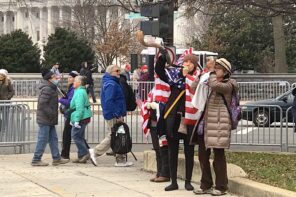Since the founding of the state in 1948, a series of Israeli governments has had to deal with the question of “who is a Jew?” and—by extension and inference—“who isn’t?”
The executive, legislative, and judicial arms of the government have grappled with the various and often contentious answers to these questions; though today, these questions and answers are even more troublesome, glaring, and attention-getting. In 2010 a new and ghoulish twist emerged into the full light of public scrutiny as the question of “who was a Jew”—that is which human remains are ‘Jewish” and which aren’t?
The sensitivity of this issue is linked to Rabbinic Jewish ideas about human remains: that they must be treated with the utmost respect and brought to proper ritual burial. In the decades-long struggle between the Israeli government and the more extreme of the country’s Ultra-Orthodox (Haredi) Rabbis, the fate of discovered remains has become what we might call a major bone of contention.
A well-organized Haredi group “Atra Kadisha” (the name translates roughly as “sacred space”) monitors construction and archaeological sites for news of any discoveries of bones. If their experts (they don’t trust government experts) suspect that the bones are the bones of the Jewish dead, the group will demonstrate, and lobby, to stop the project at hand. Rabbi David Shmidel, the head of Atra Kadisha, recently told a gathering of thousands of supporters that archaeologists and all “those who treat the bones of Jews cavalierly are our enemies.”
The bones that generated the latest controversy were found during construction of a hospital wing in the city of Ashkelon, on the Mediterranean. Barzilai Hospital, the city’s major medial center, which serves hundreds of thousands of people, is in dire need of a new emergency room. The plan was to build an ER that is bombproof, as Ashkelon lies within the trajectory of Qassam rockets fired from Gaza. The Ministry of Health, which approved and funded the new construction promised that the new wing would be completed in 2011. This is where the bones, Jewish or otherwise, enter the picture.
During the excavation of the land allotted to the new ER a small ancient graveyard was uncovered. Archaeologists from the government’s Israel Antiquities Authority judged the graveyard to be from the Byzantine period (around 600 AD), a time when Jews would not have been living in the immediate area. Barzilai Hospital administrators breathed a sigh of relief and and anticipated breaking gound for the new ER. But their relief was premature.
The Rabbis of Atra Kadisha rejected the archaeologist’s opinion and demanded that the graveyard be left intact and the ER built in another place. In any other Western country, such a confrontation between secular and religious authorities would have ended with the government getting its way, and with religious leaders girding their loins for the next church-state confrontation.
But the Israeli parliamentary system renders the government vulnerable to pressure from its many coalition partners. These coalition partners are rewarded with cabinet appointments, and in the present government coalition, the Ministry of Health was placed under control of the United Torah Judaism Party, one of the Ultra-Orthodox parties that have entered Israeli politics in the past few decades. Ultra-Orthodox control over the Ministry of Health is supposed to be purely adminstrative. Actual medical issues are dealt with by professionals—a dedicated group led until recently by Dr. Eitan Hai-Am, director general of the ministry.
But last week Dr. Hai-Am resigned. His boss, Yaakov Litzman, joined the Atra Kadish demand that the ER site be moved, and to the suprise of many Prime Minister Netanyahu—eager to keep his coalition intact—capitulated to the demand. The consequences of this decsion are that the new ER will be far away from the main hospital wing, while the original plan called for an ER in the logical place—adjacent to the main building. This change will cost the Israeli taxpayer an extra $40 million, and it won’t be completed before 2014. If Qassam rockets fall in Ashkelon soon—as they have done before—this benighted decision could cost lives.
A national outcry ensued, which, to tell the truth, is not that rare an occurence in Israel. The opposition parties, the press, the radio and TV stations, and the very extensive Web-based news outlets spoke out against Netanyahu’s decision. But the heads of the official Rabbinate (government-sanctioned and financed) would not speak out against the demands of Ultra-Orthodox co-religionists. And this reluctance to go against the rightward drift of Israel’s Orthodox Jews is in itself very troubling to Israel’s Hilonim (secular Jews), who comprise close to 40% of the Jewish population. Hilonim have long been protesting the official Rabbinate’s control over matters of “personal status”—especially their control of marriage and divorce.
Veteran opposition leader Yossi Sarid wrote in Haaretz that “while the decision itself is a scary one, what it symbolizes is horrifying. In the eyes of the Israeli government, the dead take precedent over the living.” And the present leader of the opposition, Tzipi Livni framed the controversy in terms that directly challenges the Orthodox hegemony over religious issues in Israel. Speaking from Barzilai Hospital, Livni called the struggle over the site of the ER “a struggle over Judaism and not against Judaism… The issue is not just about the Barzilai Medical Center… but over the way decisions are made in Israel.”
A week into the controversy, revulsion against Orthodox activism was being expressed often and forcefully. In an editorial titled “Unenlightened in Ashkelon,” Haaretz noted that by endorsing the move of the planned ER, Israel “endorsed once again the sad inference that behind a facade of enlightenment and openness, Israeli society displays the symptoms of fundamentalist religion that has no place in a Western democracy.” That Haaretz and the other leading dailies would editorialize against Netanyahu’s giving in to Haredi demands is not suprising. But what took some Israel-watchers by suprise was that the ER controversy has led to calls for the ‘disestablishment’ of the Chief Rabbinate.
The editors of the English-language Jerusalem Post, known for their support of the current government—and of earlier governments of the Israeli Right—seemed to echo opposition leader’s Tzipi Livni’s sentiments when they wrote on March 29 that “the time has come to do away with the Chief Rabbinate. This is the only conclusion any clear-headed observer, concerned about the way Judaism is being represented in the public domain, can draw.” Hilonim, especially the more vocal and militant among them
In seeming to accede to the demands of his coalition’s Ultra-Orthodox constiuents, Benjamin Netanyahu (busy with international affairs in general and with the conflict with the Obama administration in particular) at first made a hasty and incautious decision that may have wide-ranging implications for all Israelis—and not only for those served by the staff of Barzilai Hospital. Then this week, in one of those sudden reversals of policy for which he is now known, Netanyahu told Deputy Health Minister Yaakov Litzman, that he had reconsidered the case and would follow the opinion of many of Israel’s medical professionals that moving the Barzilai ER was a very bad idea.
It is not only Benjamin Netanyahu who has changed his mind. The more ‘progressive’ of the ulta-Orthodox communities of Israel and the diaspora have been embarrassed by the Barzilai Hospital affair. The Haredi image in Israel has improved over the past few years, to some extent because of selective (male) Haredi participation in the Israeli Army. As resentment against Haredi exemptions from Israel’s compulsory military service has fueled resentment again the Ultra-Orthodox, this sharing of the conscription burden has done quite a bit to lessen that resentment.
But the Barzilai affair again painted Haredim as anti-modern and reactionary. Those Haredi groups that have Web sites (and there are quite a few) are now calling on their rabbis to go against Litzman’s demands. Last week’s Jerusalem Post quotes the Web site Kikar Hashabat as saying that Litzman “aggresively and disgacefully exploited his power in a way that turned the entire nation against us.”




